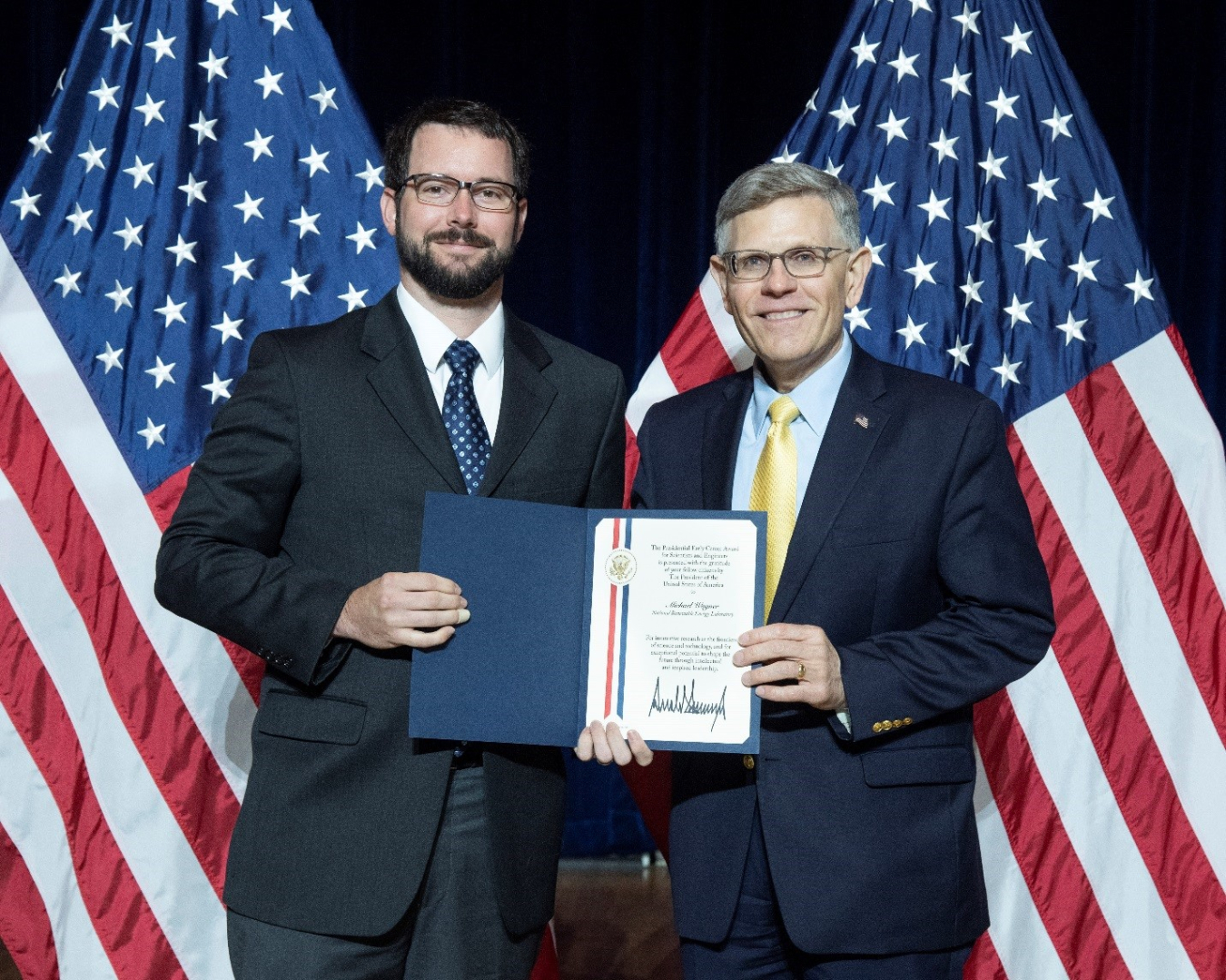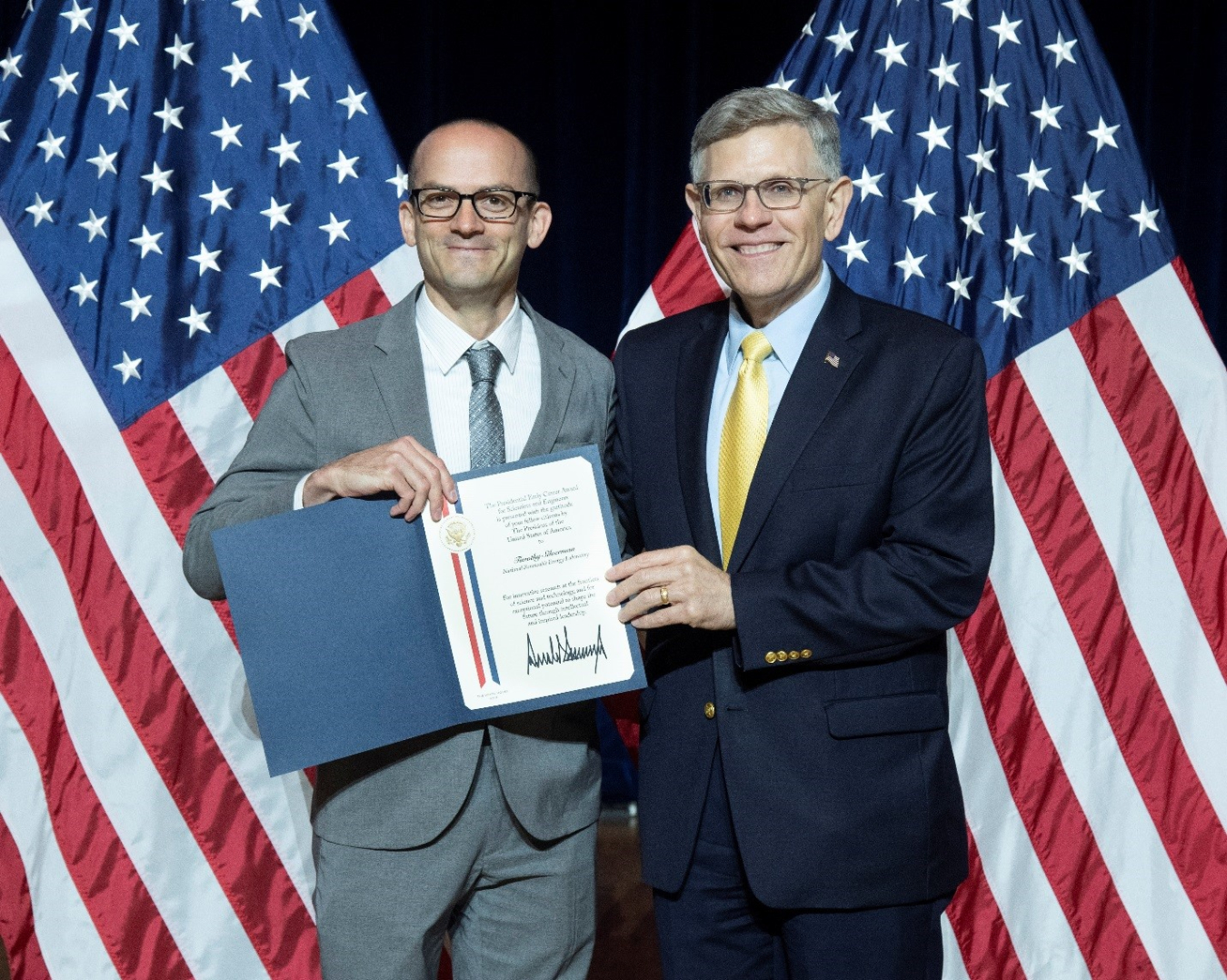Two SETO awardees, Michael Wagner and Timothy Silverman, were awarded the Presidential Early Career Award for Scientists and Engineers.
Solar Energy Technologies Office
July 29, 2019On July 2, 2019, two U.S. Department of Energy (DOE) Solar Energy Technologies Office (SETO) awardees, Michael Wagner and Timothy Silverman, were awarded the Presidential Early Career Award for Scientists and Engineers (PECASE) for their respective work to advance photovoltaics (PV) and concentrating solar-thermal power (CSP). Both are researchers at the National Renewable Energy Laboratory (NREL).
The PECASE is the most prestigious award presented by the U.S. government to exceptionally innovative new scientists and engineers. Silverman and Wagner attended a recognition ceremony at DOE headquarters in Washington, D.C., on July 25, and received a commemorative plaque. All winners are recommended for the award by participating federal agencies.


Wagner’s work has included the modeling, design, and optimization of solar thermal technologies. He has led three SETO-funded projects. In 2012, his team received $2.7 million to develop a high-temperature receiver for CSP plants that uses supercritical carbon dioxide to transfer heat. In 2015, he won a $3 million award to lead a team to develop a modeling and simulation tool based on the System Advisor Model—a software platform Wagner helped develop—that optimizes CSP plant designs to minimize operations and maintenance costs. And in 2018, SETO awarded the team $2.9 million to leverage that work to develop an automated model able to execute real-time thermal storage dispatch and solar forecasting operating strategies for CSP plants.
Much of Silverman’s work has focused on studying the performance and degradation pathways of PV modules. He has focused on critical issues such as reverse-bias breakdown in thin-film modules and managing and preventing overheating in PV systems. In 2015, SETO awarded Silverman and his team at NREL $2.8 million to develop a thermal model and passive cooling packaging for PV modules to control high temperatures and yield higher power output. And in 2016, they were awarded $125,000 to develop a lower-cost and more efficient PV module design.
SETO is proud to be at the forefront of helping talented researchers develop technologies to make solar energy more reliable, widespread, and affordable.

